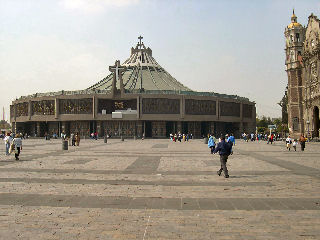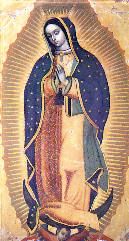|
026. quimolhuilia: "Maxicmatti, ma huel yuh ye in moyollo, noxocoyouh, canehuatl in nicenquizcacemicac Ichpochtli Santa María, in inantzin in huel nelli Teotl Dios, in ipalnemohuani, in teyocoyani, in tloque nahuaque, in ilhuicahua, in tlalticpaque. Huel nicnequi, cenca niquelehuiz inic nican nechquechilizque noteocaltzin,
|
and she says to him: "Know, be sure, my dearest-and-youngest son, that I am the Prefect Ever Virgin Holy Mary, mother of Him, the true God, giver of life, the inventor and creator of people, the lord of the near and of the nigh , the owner of the sky , the owner of the earth . I want very much that they build my sacred little house here,
|
 Content Challenge 010: Juan Diego is a Christian. Is this vision of heaven more Christian or more Aztec? Explain.
Content Challenge 010: Juan Diego is a Christian. Is this vision of heaven more Christian or more Aztec? Explain.
